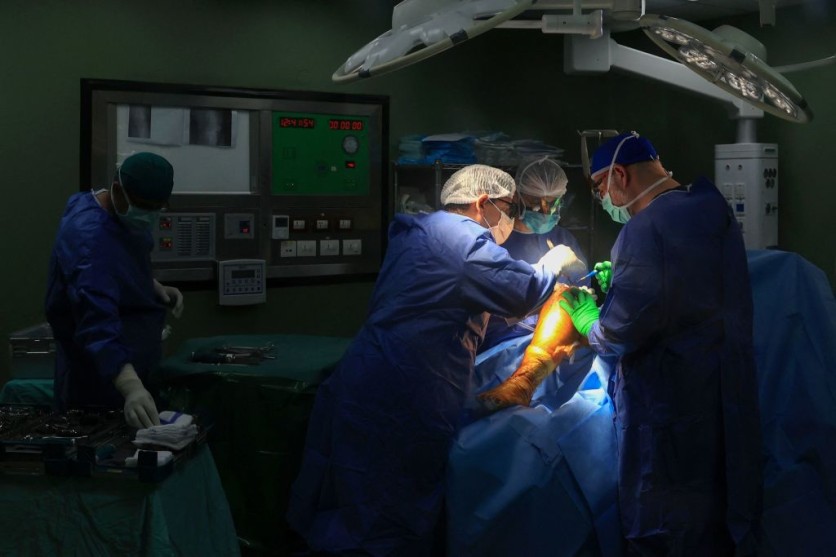Although AI and machine learning are being integrated into healthcare, clinical decision support (CDS) algorithms still heavily rely on clinicians. Many doctors are not equipped to use these technologies efficiently, according to UMSOM professors.
Clinical uncertainty may be predicted by CDS algorithms, but for integration to be effective, physicians must comprehend how they function and correctly interpret their predictions.

(Photo: SAID KHATIB/AFP via Getty Images) A medical team from the US-based FAJR Scientific Foundation perform surgery at Nasser Medical Complex in Khan Yunis, in the southern Gaza Strip on August 6, 2023, during a five-day visit to train local physicians.
Preparations for Algorithm Integration
Before completely incorporating algorithms into their medical practices, clinicians must first study how computers think and function, stresses Dr. Daniel Morgan, Professor of Epidemiology & Public Health at UMSOM.
The problem is that most doctors lack the underlying knowledge of probability and risk adjustment needed to comprehend the results of CDS algorithms.
As a result, healthcare practitioners frequently consider the present software that combines these algorithms into electronic medical record systems to be complex and challenging to use.
Error-Proofing
The authors make suggestions for using AI techniques in clinical training and medical education. To make thinking about probability more natural, they propose explicit coverage of probabilistic reasoning and visualization tools.
To assess the effectiveness of tests and algorithms, training should also include knowing performance metrics like sensitivity and specificity.
When making clinical decisions, doctors should carefully assess CDS predictions, keeping in mind the limits of the algorithms, the context, and any patient-specific elements that the algorithms could have missed.
Applying and Observing
In order to ensure transparency and patient engagement, medical professionals should effectively convey CDS-guided decision-making, evaluate input effects, and apply algorithms to specific patient instances.
To take advantage of breakthroughs in network medicine and artificial intelligence in healthcare, the University of Maryland established the Institute for Health Computing (IHC).
Dr. Katherine Goodman is leading a collaborative effort to use digital medical health data to enhance illness diagnosis, prevention, and treatment.
The institution seeks to advance the application of CDS algorithms by educating and training healthcare professionals in data sciences and enhancing physicians' probabilistic skills.
Related Article : AI Can Now Determine Human's Response to Drug Compounds, Applicable for Medicine Development

ⓒ 2025 TECHTIMES.com All rights reserved. Do not reproduce without permission.




